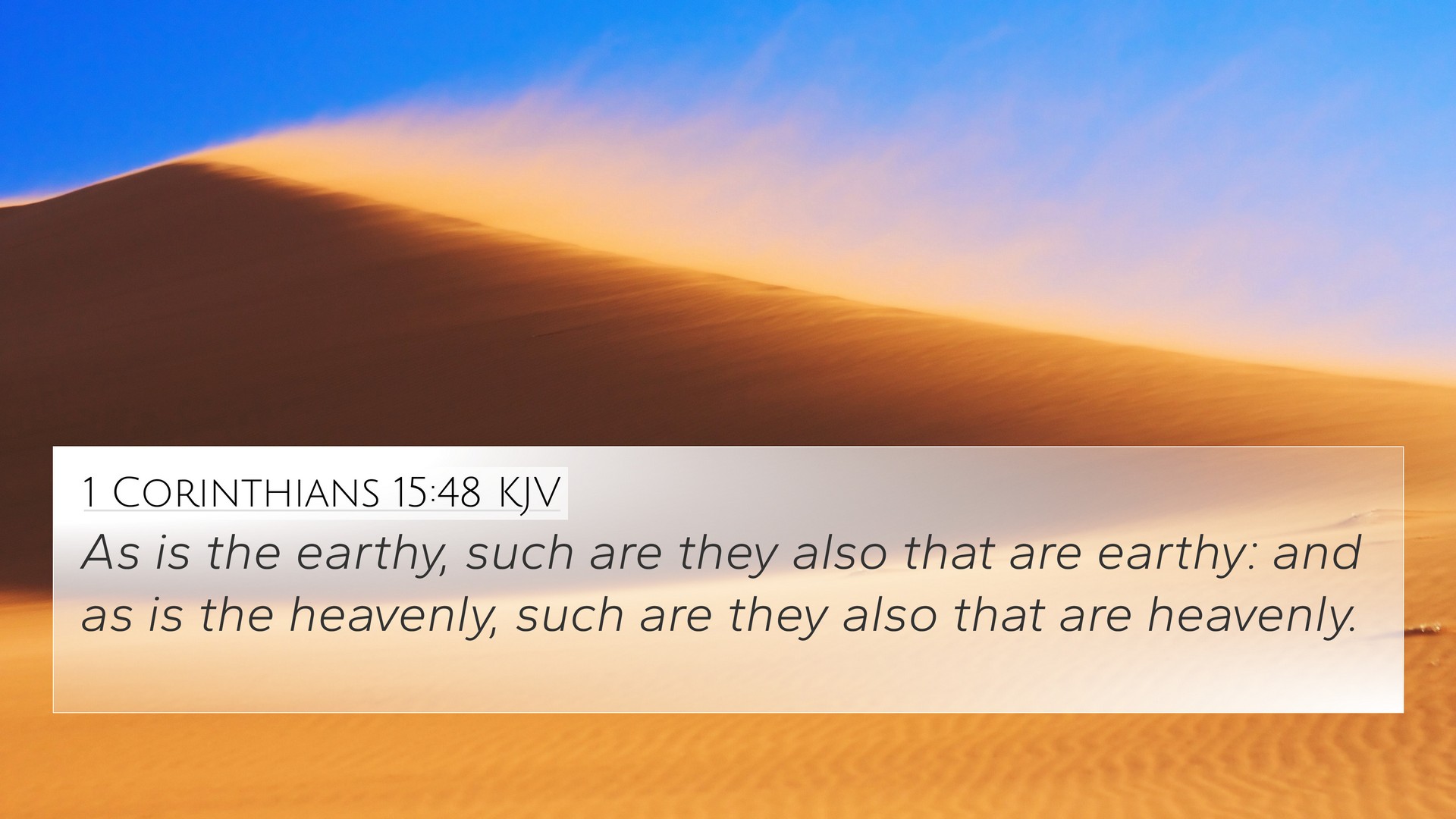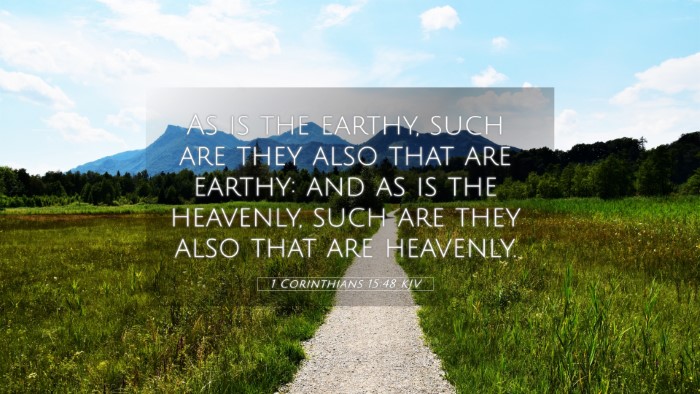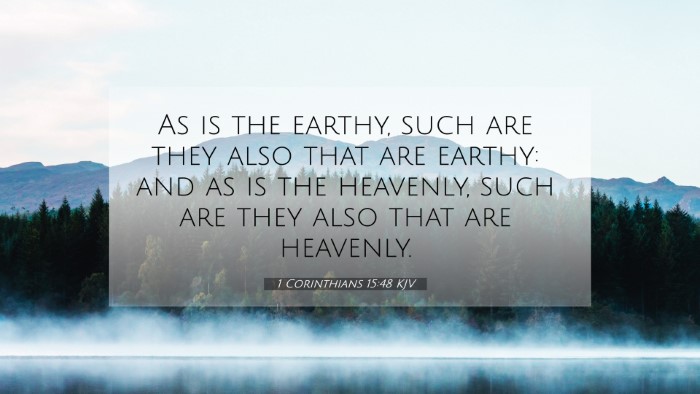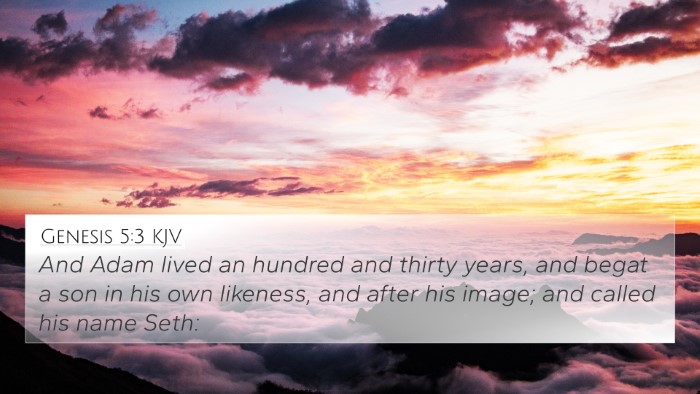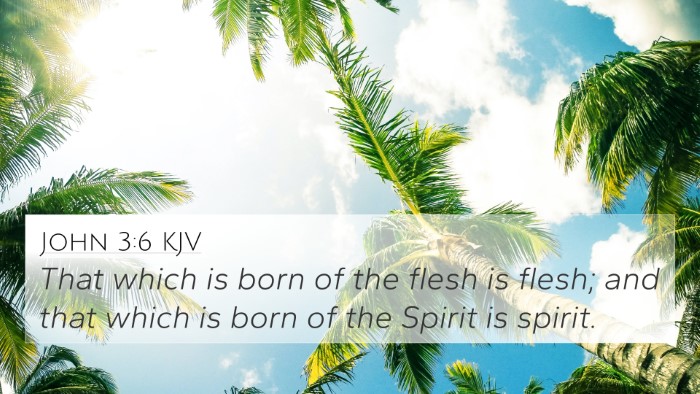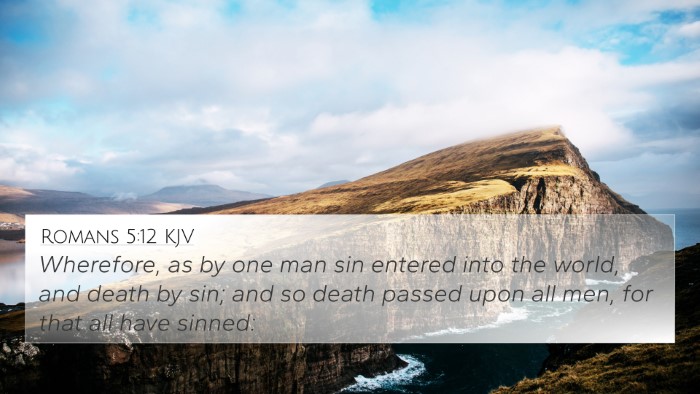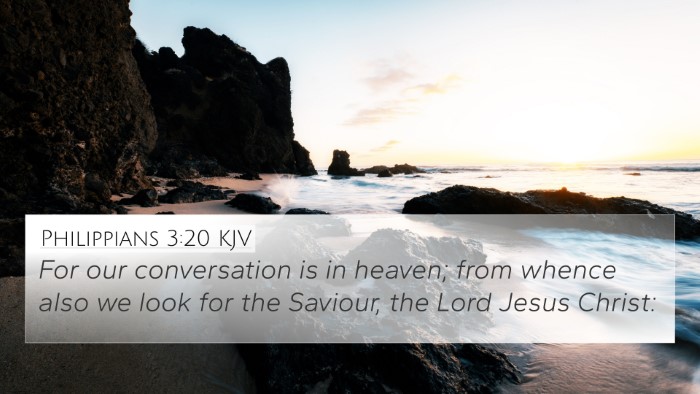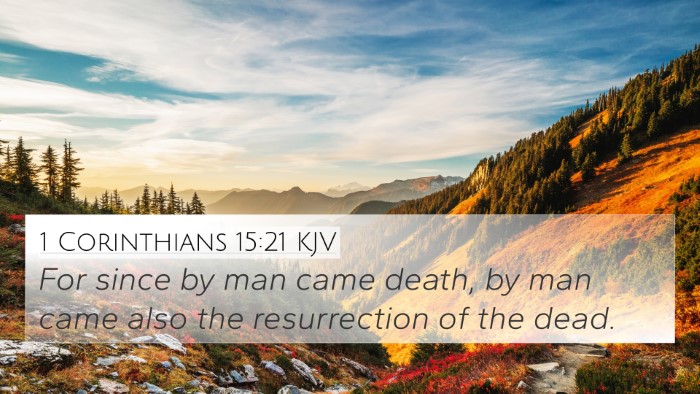Understanding 1 Corinthians 15:48
1 Corinthians 15:48 states: "As is the earthy, such are they also that are earthy: and as is the heavenly, such are they also that are heavenly." This verse presents a profound comparison between earthly and heavenly existence, illustrating the connection we have with both realms. To grasp its significance, it is essential to delve into its theological implications as assessed by renowned biblical commentators.
Summary of Biblical Context
This verse is part of Paul’s discourse on the resurrection, emphasizing the distinction and connection between the physical and spiritual bodies. The commentary by Matthew Henry underlines that earthly beings share characteristics related to the dust from which they were formed. In contrast, the heavenly beings, like Christ, reflect the divine nature and glory of spiritual existence.
Commentary Insights
Matthew Henry's Commentary
Henry emphasizes that just as we inherit traits from our earthly parents, those who are born into the spiritual family inherit attributes from the heavenly. He draws attention to the dual nature of humanity—rooted in earthly existence yet called to aspire towards a heavenly likeness.
Albert Barnes' Notes
Barnes points out that the comparison between earthy and heavenly not only suggests a physical transition but also highlights the transformational aspect of resurrection life. He argues that believers are compelled to seek the heavenly, illustrating that our earthly experiences should lead us to comprehend our future spiritual realities.
Adam Clarke's Commentary
Clarke expands on the theme by presenting the verse as a microcosm of resurrection theology. He interprets 'earthy' as denoting our mortal state, characterized by limitations and weaknesses, whereas 'heavenly' signifies lives transformed through Christ's resurrection, promising glory and eternal life.
Thematic Connections and Cross-References
1 Corinthians 15:48 can be linked to various scriptures that reinforce its themes of resurrection and duality. The following cross-references are noteworthy:
- Genesis 2:7 - God forming man from dust, establishing our earthly origin.
- Philippians 3:20-21 - The transformation of our bodies into a glorious form like Christ's.
- John 3:12-13 - The connection between earthly and heavenly things as understood through faith.
- 2 Corinthians 5:1 - A reference to the eternal house not made with hands, emphasizing our heavenly hope.
- Romans 8:18 - The glory to be revealed in us contrasts our present sufferings and earthly burdens.
- 1 John 3:2 - What we shall be, referencing our future heavenly existence.
- Matthew 22:30 - Discussion of the resurrection and the nature of heavenly beings.
- Romans 5:17 - The theme of reigning in life through Jesus Christ as the heavenly counterpart to our earthly state.
- Colossians 3:2 - A call to set our minds on things above, aligning with the heavenly focus of the verse.
- 1 Peter 1:4 - An inheritance reserved in heaven, connecting the concept of earthly life to heavenly promises.
Cross-Referencing Biblical Texts
Engaging in cross-referencing biblical texts deepens our understanding of 1 Corinthians 15:48. By exploring tools such as a bible concordance or a comprehensive bible cross-reference guide, one can find enriching connections that highlight how various scriptures intermingle to present a cohesive narrative about life, death, and resurrection.
How to Use Bible Cross-References
To enhance your study, consider these methods:
- Utilizing online bible reference resources for easy access to connections.
- Engaging in cross-reference bible study methods by tracing themes and motifs across testaments.
- Creating your own bible chain references, linking verses that speak to similar subjects or ideas.
- Conducting a comparative study of Pauline epistles to gather insight into similar teachings of Paul.
Conclusion
1 Corinthians 15:48 invites believers to reflect on their dual existence as both earthy and heavenly beings. With the guidance of public domain commentaries and a commitment to cross-referencing, one can explore the rich implications of this verse. By identifying connections between other scripture passages, we deepen our comprehension of heavenly aspirations in light of Earthly realities.
